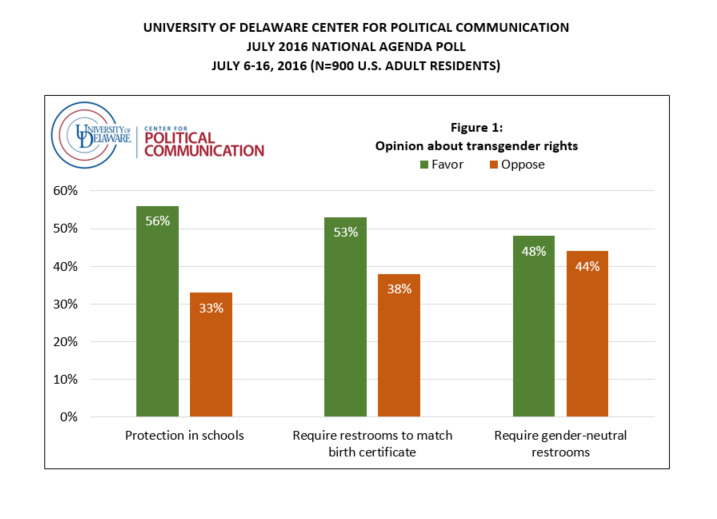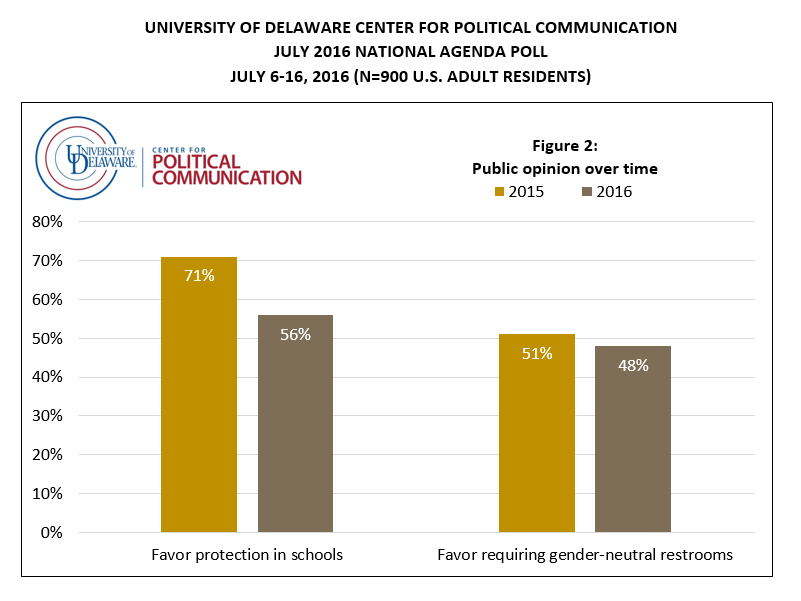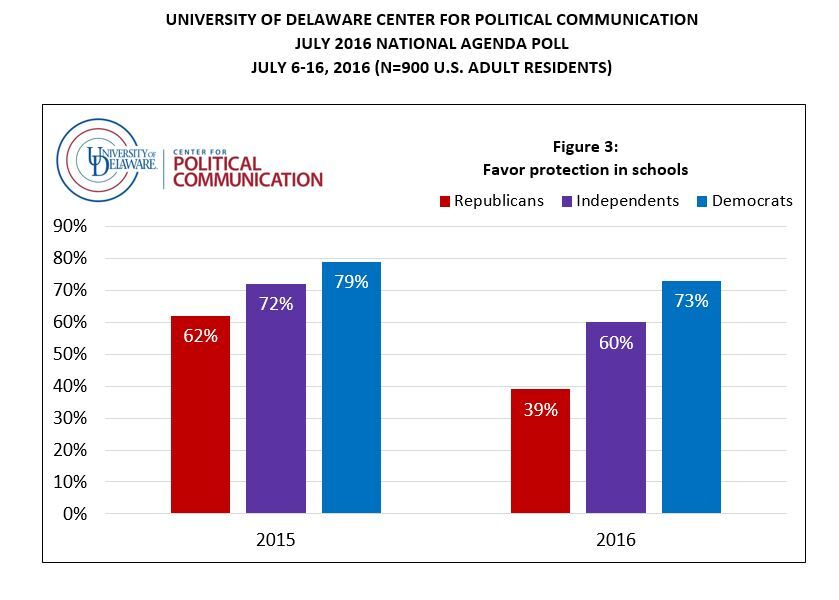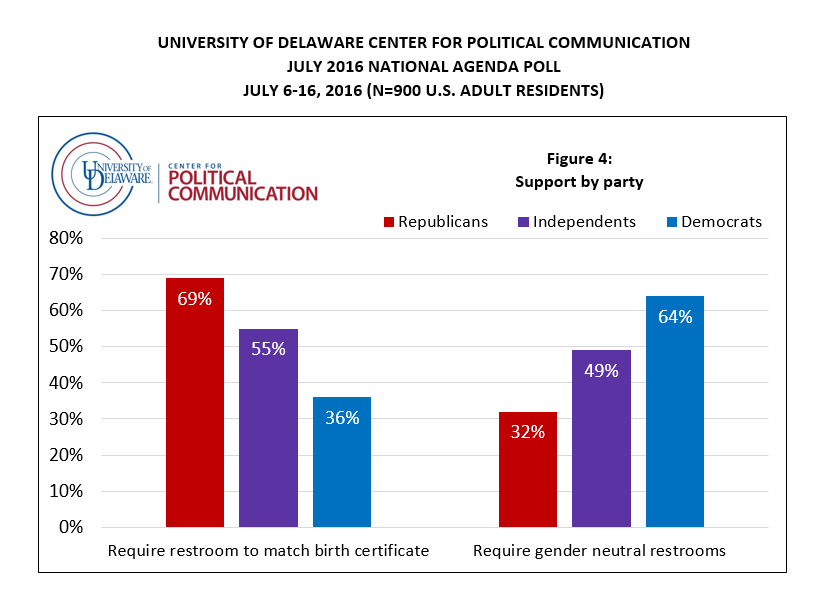National survey shows divided, increasingly polarized public opinion on transgender rights : National survey shows polarized public opinion on transgender rights
Support for protections has declined since UD’s November 2015 poll

JULY 18, 2016–The issue of transgender rights has risen on the political agenda in 2016, in the wake of a controversial North Carolina law on public restrooms and new federal rules protecting transgender students. A new study from the University of Delaware’s Center for Political Communication shows that public opinion about transgender rights is sharply, and in some cases increasingly, divided along party lines, just as the two political parties gear up for their national nominating conventions.
In the study, a majority of Americans said they support laws to protect transgender students from discrimination in schools. Of those surveyed, 56% favor such protections, while 33% oppose them. However, support for such laws has declined since November 2015, when an earlier University of Delaware Center for Political Communication survey found that 71% of Americans favored protections for transgender students and 26% opposed them.
Transgender issues are new for many Americans

For many Americans, these issues are new,” said CPC Director Paul Brewer. “When we first polled on them last year, the national political battle over them was just beginning. Now, prominent voices on both sides of the political fence”from President Obama to Republican presidential nominee Donald Trump”are taking public stands on transgender rights issues.”
In the new study, a majority of Americans support laws requiring people to use restrooms that match the sex listed on their original birth certificate. The study finds that 53% of those surveyed favor such laws, while 38% oppose them.
Support for requiring public buildings like courthouses to have gender-neutral restrooms remains relatively steady since last year. In the new study, 48% favor doing so while 44% are opposed. In November 2015, 51% favored requiring gender-neutral restrooms, versus 43% opposed.
Support for transgender protection laws has dropped among Republicans

The new study reveals a dramatic drop in support among Republicans for laws protecting transgender students from discrimination in schools. In 2015, a clear majority (62%) of Republicans favored such laws. By July 2016, support among Republicans has dropped sharply – by 23 percentage points, to 39%. Support for these laws has also declined among Democrats and independents, but less dramatically.
“As the Obama administration has taken a stronger stance on protecting transgender students in schools, and Republicans have adopted a national party platform opposing its new rules, Americans’ views on the issue have become more polarized,” said Associate Professor Philip Jones of the Department of Political Science and International Relations, who helped design the study. “Now that the issue is receiving more media attention, and politicians are making their positions clearer, voters seem to be picking up on the signals from party leaders.”
About the study

The National Agenda Opinion Project research was funded by the University of Delaware’s Center for Political Communication (CPC) and the William P. Frank Foundation. The study was supervised by the CPC’s Director, Paul Brewer, a professor in the Departments of Communication and Political Science & International Relations.
Results are based on telephone interviews with a representative national sample of 900 adult U.S. residents. Telephone interviews were conducted by landline (450) and cell phone (450, including 253 without a landline phone). The survey was conducted under supervision of the Center for Political Communication by Princeton Survey Research Associates International. The data were collected from July 6-13, 2016. Statistical results are weighted to correct known demographic discrepancies. The margin of sampling error for the complete set of weighted data is – 4.2 percentage points.
Readers should be aware that in addition to sampling error, question wording and practical difficulties in conducting surveys can introduce error or bias into the findings of public opinion polls.
Please contact Paul Brewer at (302) 831-7771 for more details about the survey’s methodology.
